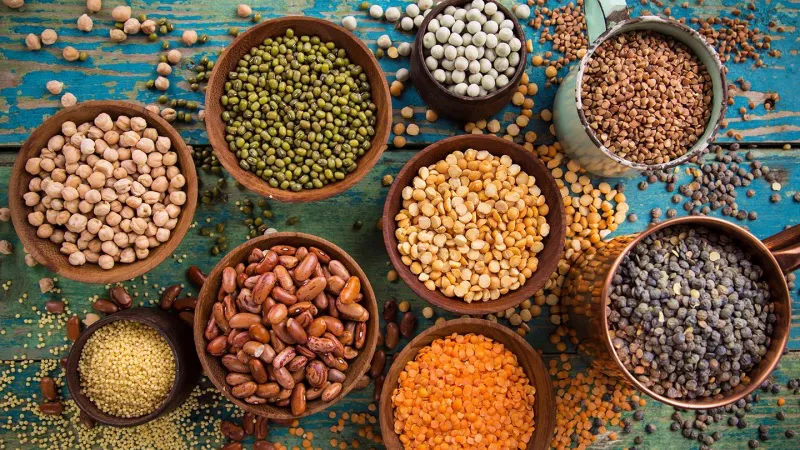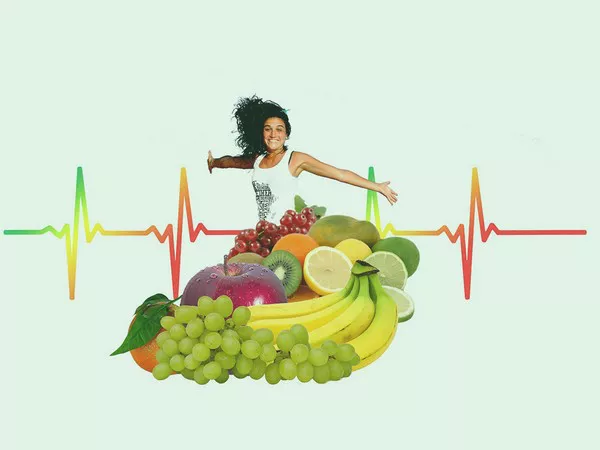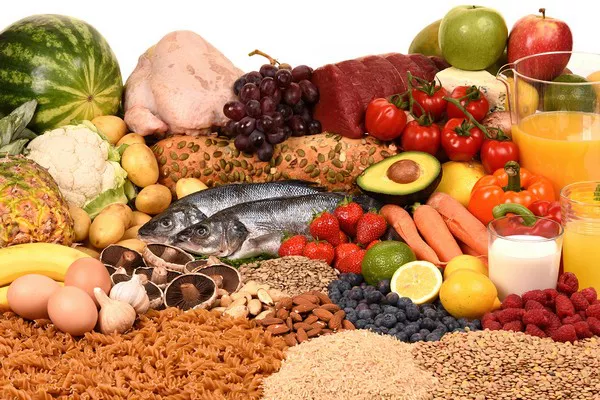Protein is an essential macronutrient that plays a crucial role in numerous physiological processes in the body. From building and repairing tissues to supporting immune function and producing enzymes, protein is a fundamental component of a healthy diet. In this article, we will explore the question of how many grams of protein one should consume per day to maintain optimal health and well-being. By understanding the recommended protein intake and its implications, you can make informed choices to fuel your body with the right amount of protein.
The Importance of Protein in the Diet
Protein is often referred to as the “building block” of the body, and for good reason. It is responsible for the growth, maintenance, and repair of tissues, including muscles, organs, skin, and hair. Additionally, protein plays a vital role in the production of enzymes, hormones, and antibodies, which are necessary for various biological processes. Without an adequate supply of protein, our bodies cannot function optimally, leading to potential health issues.
Factors Influencing Protein Requirements
The optimal daily protein intake varies from person to person and depends on several factors, including age, sex, body weight, activity level, and overall health. For instance, athletes and individuals engaged in intense physical activity may require more protein to support muscle repair and growth. On the other hand, older adults may have higher protein needs due to age-related muscle loss and decreased protein absorption. It is important to consider these factors when determining your individual protein requirements.
Recommended Daily Protein Intake
The recommended daily protein intake is often expressed in grams per kilogram of body weight (g/kg). The Dietary Reference Intakes (DRIs) established by the Food and Nutrition Board of the National Academies of Sciences, Engineering, and Medicine provides guidelines for protein intake based on age, sex, and life stage. Here is a general overview of the recommended protein intake:
Adults: For healthy adults, the recommended dietary allowance (RDA) for protein is 0.8 grams of protein per kilogram of body weight. This translates to approximately 0.36 grams of protein per pound of body weight. However, it is worth noting that this value represents the minimum protein requirement for sedentary individuals and may not be sufficient for everyone.
Athletes and Active Individuals: Athletes and individuals engaged in regular exercise or intense physical activity may have increased protein needs. The Academy of Nutrition and Dietetics, Dietitians of Canada, and the American College of Sports Medicine recommend a protein intake range of 1.2 to 2.0 grams per kilogram of body weight for athletes, depending on the type and intensity of their training.
Pregnant and Lactating Women: During pregnancy and lactation, women have higher protein requirements to support fetal development and milk production. The RDA for pregnant women is 1.1 grams per kilogram of body weight, while lactating women have an RDA of 1.3 grams per kilogram of body weight.
Older Adults: Older adults may experience age-related muscle loss, known as sarcopenia, which can be mitigated by adequate protein intake. The International Association of Gerontology and Geriatrics recommends a protein intake of 1.0 to 1.2 grams per kilogram of body weight for older adults to support muscle health and function.
Children and Adolescents: Protein needs for children and adolescents vary based on age and growth. The DRIs recommend a protein intake of 0.95 grams per kilogram of body weight for children aged 1 to 3 years, 0.95 grams per kilogram of body weight for children aged 4 to 13 years, and 0.85 grams per kilogram of body weight for adolescents aged 14 to 18 years.
Considerations for Protein Quality
In addition to the quantity of protein consumed, the quality of the protein also plays a crucial role in meeting nutritional needs. Protein quality refers to the presence and balance of essential amino acids, the building blocks of protein that the body cannot produce on its own. Animal-based sources of protein, such as meat, poultry, fish, eggs, and dairy products, are considered complete proteins as they provide all essential amino acids in adequate amounts. Plant-based protein sources, such as legumes, grains, nuts, and seeds, may lack certain essential amino acids individually but can be combined to form complete proteins. It is important to include a variety of protein sources in your diet to ensure you obtain all essential amino acids.
Health Benefits of Adequate Protein Intake
Meeting your daily protein requirements offers a range of health benefits. Some of the key advantages of consuming an adequate amount of protein include:
Muscle Health: Protein is essential for muscle growth, repair, and maintenance. Consuming sufficient protein supports muscle strength, function, and recovery, particularly in conjunction with regular physical activity or resistance training.
Weight Management: Protein has been shown to promote feelings of fullness and reduce appetite, which can aid in weight management. Including protein-rich foods in your meals and snacks can help control cravings and prevent overeating.
Bone Health: Protein plays a crucial role in maintaining healthy bones. It provides the necessary amino acids for collagen synthesis, which is a major component of bone tissue. A sufficient protein intake is particularly important for older adults who may be at an increased risk of osteoporosis.
Metabolic Health: Protein has a higher thermic effect compared to carbohydrates and fats, meaning that it requires more energy to digest, absorb, and metabolize. This can slightly increase your metabolic rate, potentially aiding in weight management and metabolic health.
Wound Healing: Protein is involved in the repair and regeneration of tissues, making it essential for wound healing. Adequate protein intake is particularly important during periods of injury, surgery, or illness to support the body’s healing processes.
Potential Risks of Excessive Protein Intake
While protein is vital for optimal health, consuming excessive amounts can have potential risks. It is important to strike a balance and avoid extreme protein intakes. Some potential risks associated with excessive protein intake include:
Kidney Strain: High protein diets may put strain on the kidneys, particularly in individuals with existing kidney conditions. However, for healthy individuals, moderate to high protein intakes are generally well-tolerated and do not pose a risk to kidney health.
Nutritional Imbalances: Consuming excessive protein may lead to imbalances in other essential nutrients, as it often displaces other important food groups in the diet. It is crucial to maintain a well-rounded diet that includes a variety of nutrient-dense foods.
Increased Risk of Chronic Diseases: Some studies have suggested that very high protein intakes, especially from animal sources, may be associated with an increased risk of certain chronic diseases, such as heart disease, cancer, and osteoporosis. However, more research is needed to fully understand these associations.
Meeting Your Protein Needs
Now that we have explored the importance of protein and the recommended daily intake, here are some practical tips to help you meet your protein needs:
Include Protein-Rich Foods: Incorporate a variety of protein-rich foods into your meals and snacks. Choose lean meats, poultry, fish, eggs, dairy products, legumes, nuts, and seeds. This ensures you get a good balance of essential amino acids.
Distribute Protein Intake: Spread your protein intake throughout the day to optimize muscle protein synthesis. Aim to include a source of protein in each meal and snack to promote satiety and support muscle health.
Consider Protein Supplements: In certain situations, such as intense training or limited access to whole food protein sources, protein supplements can be a convenient option. However, it is important to prioritize whole food sources whenever possible.
Pay Attention to Total Caloric Intake: If you are trying to manage your weight, be mindful of your total caloric intake. While protein is important, consuming excessive calories from any macronutrient can contribute to weight gain.
Consult a Registered Dietitian: If you have specific dietary needs, health conditions, or questions about your protein intake, consider consulting a registered dietitian. They can provide personalized recommendations based on your individual circumstances.
Conclusion
Protein is a vital nutrient that is involved in numerous physiological processes in the body. The recommended daily protein intake varies depending on factors such as age, sex, body weight, and activity level. By meeting your protein needs through a balanced diet that includes a variety of protein-rich foods, you can support muscle health, weight management, bone health, and overall well-being. Remember to consult a healthcare professional or registered dietitian to determine the optimal protein intake for your specific needs. Fuel your body with the right amount of protein and reap the benefits of a healthy and nourished lifestyle.
[inline_related_posts title=”You Might Be Interested In” title_align=”left” style=”list” number=”6″ align=”none” ids=”3061,3057,3059″ by=”categories” orderby=”rand” order=”DESC” hide_thumb=”no” thumb_right=”no” views=”no” date=”yes” grid_columns=”2″ post_type=”” tax=””]


































